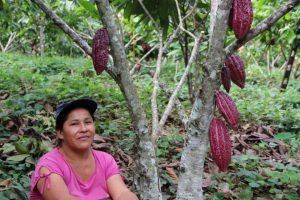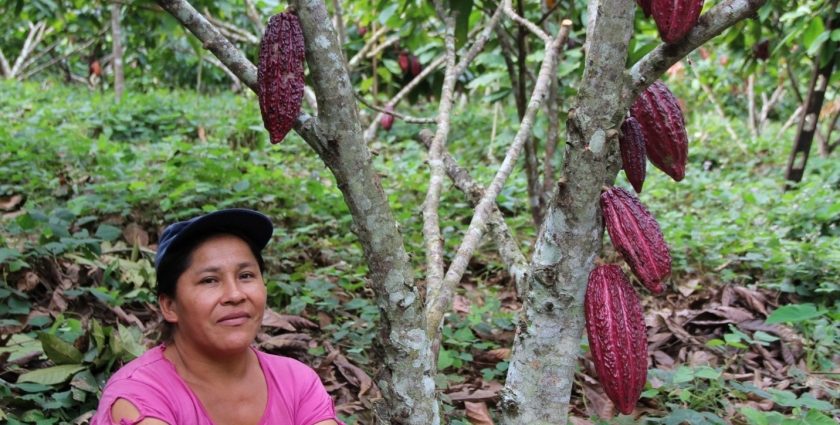
‘Greening the Cocoa Industry,’ a UN Environment Programme (UNEP) initiative to transform the global cocoa industry with more green and sustainable practices, affects 10 percent of the world’s cocoa production and is supported by more than 54 retailers and market brands, with small farmers playing a vital role in educating their peers.
Partnering with the Rainforest Alliance, the program uses Sustainable Agriculture Network (SAN) agricultural standards and is implemented in 15 countries, spanning approximately one million hectares of cocoa farmland.
The project attempts to transform farming and business practices of chocolate companies and countries that produce significant amounts of cocoa, with an eye on protecting biodiversity, improving income for small farmers, and stabilizing the industry for all value-chain parties.
For example, Clavelina Sánchez’s Peruvian farm has learned through the project to protect soil quality by using native trees for shade. She educates other farmers about sustainable cocoa production and the increased farm income and biodiversity resulting from diversifying their crops to include coffee, timber, yucca, oranges, and more.
Cocoa retailers and market brands who support sustainability helped contribute to the project’s $24.5 million (USD) financing. Rainforest Alliance and the World Cocoa Foundation (WCF) also created manuals outlining cocoa production practices that bolster long-term climate resilience.
The Rainforest Alliance established a green certification titled Rainforest Alliance Certified™ from which many kinds of products—cocoa included—are certified to have come from farmers who meet strict the organization’s strict ecological, economic and social standards. Companies that sell Rainforest Alliance Certified™ cocoa products include Magnum, Whole Foods Market, Clif Bar, Dagoba Chocolate, Newman’s Own Organics, Dove, and more.
Written by Nicole Foulke

